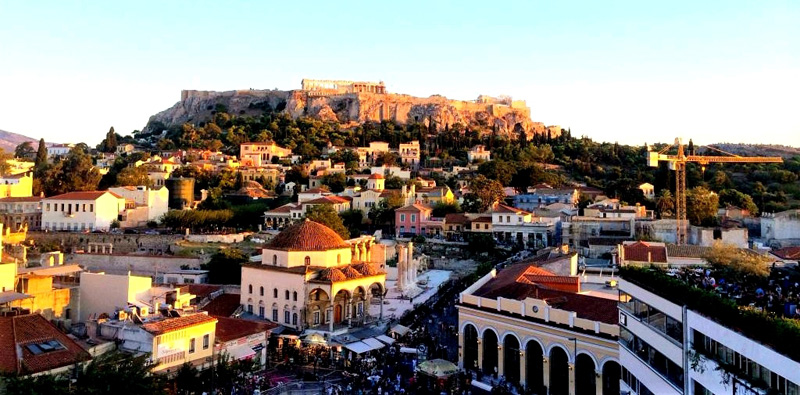


|
Beginning April 23, Greece’s capital -Athens- will be known as the "World Book Capital” for 2018, which is a global UNESCO cultural event. (Photo:Greekcitytimes) Through a rich program of more than 250 book-related events
across the city, including seminars, workshops, competitions and various
activities for adults and kids, Athenians and visitors, Athens aims to bring
books everywhere, in every corner, and spread the joy of reading.
The Greek capital takes over from the city of Conakry in Guinea
and will pass the torch to the city of Sharjah in the United Arab Emirates
next year, as UNESCO's World Book Capital concept becomes stronger since its
launch in 2001.
"In Athens today and across the world we celebrate books.
We celebrate writing, reading, publishing and sharing books. All these
activities enhance human beings," Ian Denison, Unesco Publishing and
Branding Chief, told the inaugurating event for Athens World Book Capital on
April 23 at the foot of the Acropolis hill.
"Athens is celebrating, Athens is reading books" is
the main slogan of the yearlong celebration, Greek hosts said.
"Athens' journey starts. I would like to assure UNESCO that
the choice of Athens was right, not only because of its history, but also
thanks to its prospects," Greek President Prokopis Pavlopoulos said,
addressing the event.
Athens today is a destination of culture which has the
infrastructure and passionate people who can share their love for knowledge
which helps communication between cultures, the Greek leader stressed.
"The organizing of the Athens 2018 World Book Day is one
more international acknowledgment for our city. We believe that we can take
up the responsibility and make the most of the opportunity," Mayor of
Athens Yorgos Kaminis added, urging locals and foreigners to join the
festivities.
The celebration continued on April 23 with a concert by a flute
quartet at the Acropolis museum and performances by the City of Athens Philharmonic
Band and various artists along the pedestrian walkway at the foot of the
Sacred Rock.
The Greek parliament building was also lit up on April 23
evening as part of the celebration.
|